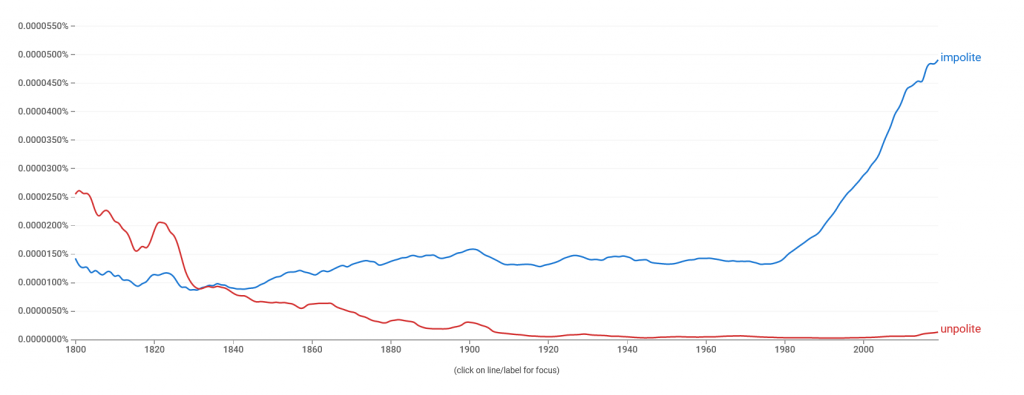- 2-minute read
- 30th August 2021
Spelling Tips: Impolite or Unpolite?
‘Impolite’ and ‘unpolite’ are two words with the same meaning. And both can be found in at least some dictionaries, so does it matter which of these words you use in your writing? In this post, we explain why it does.
What Do These Words Mean?
‘Impolite’ is an adjective that means ‘lacking good manners’ or ‘rude’:
It is impolite to interrupt when someone is talking.
I stopped going to the gym because the staff were so impolite.
The word ‘unpolite’ has exactly the same meaning. This is because both words are formed from the adjective ‘polite’, which means ‘showing consideration for another person’, with the addition of a negative prefix (either ‘im-’ or ‘un-’).
Find this useful?
Subscribe to our newsletter and get writing tips from our editors straight to your inbox.
So, what is the difference between these terms? Ultimately, ‘impolite’ is the standard term in modern English, while ‘unpolite’ is fairly old-fashioned.
Is Unpolite Still Used?
At one time, ‘unpolite’ was more common than ‘impolite’. But over the last 200 years, ‘impolite’ has become the preferred spelling, and ‘unpolite’ is now rare.

This change does make sense, though, since it matches the spelling of similar words, and adjectives that begin with ‘m’ or ‘p’ usually take the prefix ‘im-’ (e.g. modest becomes immodest and possible becomes impossible).
Summary: Impolite or Unpolite?
‘Impolite’ and ‘unpolite’ mean the same thing. But even though it can still be found in some dictionaries, the word ‘unpolite’ has almost become obsolete. For this reason, it is best to avoid using it in your writing and opt for ‘impolite’ instead.
Our team of expert proofreaders is always available to help you with spelling and grammar. Why not give our services a try by getting 500 words checked for free?